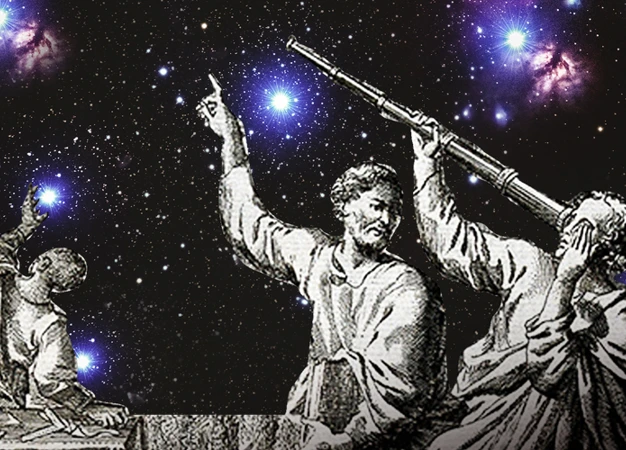Astrology and astronomy, two disciplines that have fascinated humans for centuries, seem to be intertwined yet divergent at the same time. While astrology delves into the mysteries of our personalities and the influence of celestial bodies on our lives, astronomy explores the vastness of the universe and unveils its secrets. The question of how these two seemingly contrasting fields relate to and interact with each other has long perplexed both scientists and enthusiasts alike. In this article, we will explore the origins of astrology and astronomy, delve into the intricacies of each discipline, uncover their common ground, and discuss how they can bridge the gap between science and mythology.
The Origins of Astrology and Astronomy
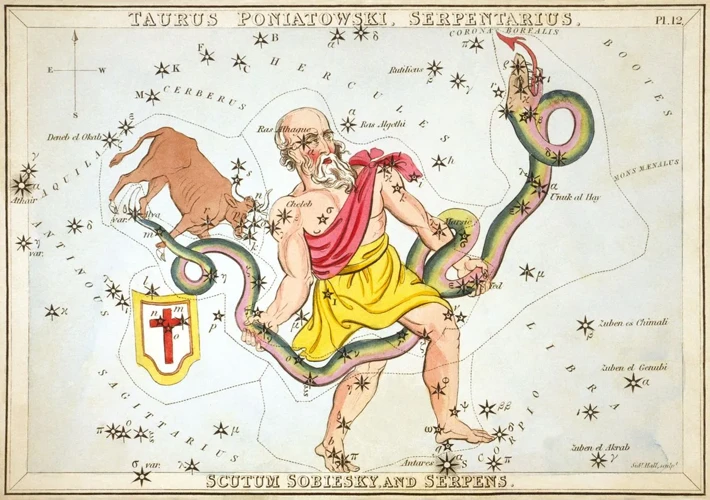
Astrology and astronomy have deep-rooted origins that trace back to ancient civilizations. The early beginnings of astrology can be found in the Babylonian and Egyptian cultures. These ancient civilizations believed that celestial bodies held immense power and influence over human lives. Astrology was used to determine personal traits, predict events, and make important decisions. On the other hand, astronomy emerged as a scientific pursuit in ancient Greece, where astronomers like Hipparchus made significant advancements in understanding the movements of celestial objects. Throughout history, astrology and astronomy developed in parallel, often influencing each other. While astrology retained its mystical and mythological elements, astronomy evolved into a systematic study of the universe, embracing mathematical calculations and empirical observations. Despite their divergent paths, astrology and astronomy share a common origin and continue to captivate human curiosity to this day.
1. Ancient Beginnings
The origins of astrology can be traced back to ancient civilizations, particularly in Babylonia and Egypt. In Babylonia, astrology was closely linked to their religious beliefs and was practiced by priests who looked to the skies for guidance. They believed that the movement and positions of celestial bodies held important messages from the gods. The Babylonians developed a system of astrology that divided the sky into twelve equal parts, which eventually became the basis for the zodiac signs we know today.
In Ancient Egypt, astrology played a significant role in their society, especially in connection with the annual flooding of the Nile River. The Egyptians associated the rising of specific stars with the start of this important event, which had great agricultural and economic implications. They believed that the positions of the stars and planets could determine the fortunes of individuals and the destiny of the nation.
These early civilizations saw a profound connection between the movements of celestial bodies and human affairs, laying the groundwork for the development of astrology. Despite being rooted in ancient mythology and religious beliefs, astrology began to evolve as a systematic practice, where observations were recorded and interpretations were made. Ancient astrologers carefully observed the skies and recorded important celestial events, such as eclipses and planetary movements. They believed that these events held significance for humanity and could impact individual lives.
The ancient beginnings of astrology set the stage for the future development of the field, fueling centuries of fascination and study. The influence of these early beliefs and practices can still be seen today, as astrology continues to captivate people’s imaginations and inspire discussions about the connection between celestial bodies and human experiences.
2. Development and Divergence
The development of astrology and astronomy took different paths over time, leading to their eventual divergence as distinct disciplines. As civilizations evolved, so did their understanding of the celestial bodies. Astrology continued to be deeply rooted in mythology and the belief that celestial bodies had direct influences on human lives. It expanded its teachings to include concepts like zodiac signs and horoscopes, associating specific personality traits and future events with the positions of the stars and planets. On the other hand, astronomy shifted towards a more scientific approach, focusing on the observation and study of celestial objects. Astronomers began to use advanced instruments to observe the movements and properties of stars, planets, and galaxies. With the introduction of telescopes, astronomers expanded their knowledge of the universe, discovering new celestial objects and uncovering the laws of physics that govern them. While astrology maintained its roots in mythology and intuition, astronomy became firmly grounded in empirical evidence and mathematical calculations.
Understanding Astrology
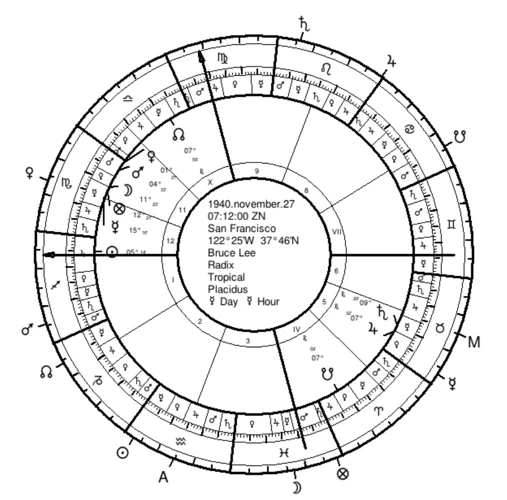
Understanding astrology involves exploring the concepts of zodiac signs and horoscopes. The zodiac signs, also known as constellations, are twelve divisions along the ecliptic, each representing a specific period of the year. Each zodiac sign is associated with distinct personality traits and characteristics, which are believed to be influenced by the position of celestial bodies at the time of a person’s birth. Horoscopes, derived from the zodiac signs, provide astrological predictions and guidance based on one’s birth date and time. While astrology has its critics who debunk the notion of an incompatible zodiac, many people find value in exploring how astro-genetics and zodiac traits might be connected to their identities, adding a layer of intrigue to astrology’s role in self-discovery.
1. Zodiac Signs and Horoscopes
- Zodiac Signs: The concept of zodiac signs forms the foundation of astrology. The zodiac consists of twelve signs, each associated with a specific set of personality traits and characteristics. These signs are based on the position of the sun at the time of a person’s birth. Aries, Taurus, Gemini, Cancer, Leo, Virgo, Libra, Scorpio, Sagittarius, Capricorn, Aquarius, and Pisces make up the twelve zodiac signs. Each sign is believed to have distinct qualities that can influence an individual’s behavior, relationships, and destiny.
- Horoscopes: Horoscopes are astrological predictions or forecasts based on the zodiac signs. They provide insights into various aspects of life, such as love, career, health, and finances. Individuals often consult horoscopes to gain a better understanding of their future prospects or seek guidance in decision-making. Horoscopes are created by astrologers who analyze the positions of celestial bodies, such as the sun, moon, planets, and stars, to make predictions about the influence they may have on different zodiac signs. It’s important to note that while horoscopes can be seen as entertaining and thought-provoking, their accuracy and scientific validity are subjects of debate among skeptics. Some argue that horoscopes are purely based on generalizations and do not hold true for every individual.
2. Astronomical Alignment
Astronomical alignment holds significance in both astrology and astronomy, albeit with different interpretations. In astrology, the alignment of celestial bodies at the time of a person’s birth is believed to exert a profound influence on their personality traits and destiny. The zodiac signs, which are determined by the positions of the sun, moon, and planets, play a central role in astrological readings. Each zodiac sign is associated with specific characteristics and attributes that are believed to shape an individual’s behavior and life experiences. Astrologers analyze the alignment of these celestial bodies to provide insights into a person’s strengths, weaknesses, and compatibility with others.
In contrast, in the realm of astronomy, astronomical alignment refers to the positioning of celestial objects in relation to one another and Earth. Astronomers study planetary alignments, such as conjunctions and oppositions, to gain a deeper understanding of the universe’s mechanics. These alignments offer opportunities to observe rare celestial events and phenomena. For example, the alignment of the sun, moon, and Earth during a solar eclipse results in the moon casting a shadow on certain regions of the Earth, creating a captivating spectacle.
While astrology and astronomy approach astronomical alignment from different perspectives, they both acknowledge its significance. Astrology sees it as a cosmic indication of personality traits and destinies, while astronomy regards it as a fascinating phenomenon in the vastness of the universe. Understanding and appreciating these distinct viewpoints can help bridge the gap between the two disciplines.
The Science behind Astronomy
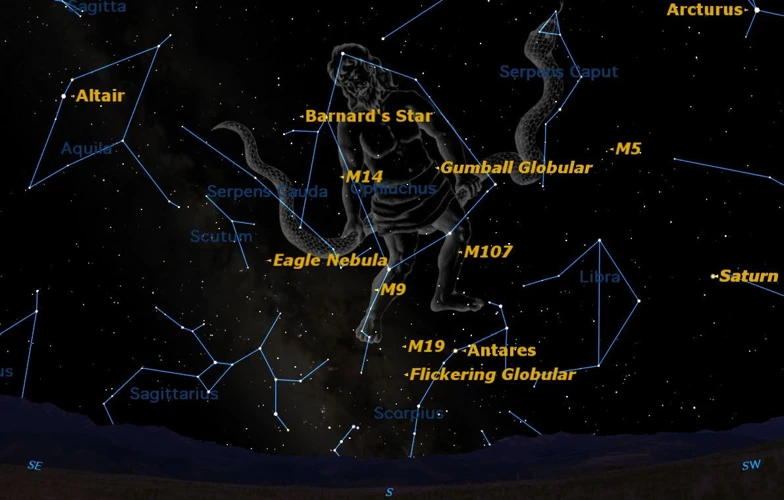
Astronomy, often referred to as the science of celestial objects, involves the systematic study of stars, planets, galaxies, and other cosmic phenomena. It is grounded in rigorous scientific principles and methodologies. Astronomers employ various tools and techniques to observe and analyze the universe. They use powerful telescopes to capture light from distant objects, allowing them to gather data and gain insights into the composition, structure, and behavior of celestial bodies. Through precise measurements and calculations, astronomers can determine the distances, sizes, and movements of stars and planets. This scientific approach to astronomy has expanded our understanding of the universe and has led to groundbreaking discoveries, such as the existence of exoplanets and the cosmic microwave background radiation.
1. Study of Celestial Objects
- Observation and Measurement: The study of celestial objects in astronomy involves careful observation and precise measurement. Astronomers use advanced telescopes and other instruments to observe stars, planets, galaxies, and other celestial phenomena. They collect data on the position, composition, movement, and behavior of these objects to understand their characteristics and dynamics.
- Categorization and Classification: Astronomers categorize celestial objects into various types based on their properties. Stars, for example, are classified based on their brightness, spectral characteristics, and evolutionary stage. Galaxies are categorized based on their shape, size, and structure. This classification helps astronomers organize and study the vast array of celestial objects in a systematic manner.
- Stellar Evolution and Life Cycle: The study of celestial objects also involves understanding their life cycle and evolution. Astronomers observe how stars form from dense clouds of gas and dust, undergo fusion reactions in their cores, and eventually exhaust their nuclear fuel. They study the different stages of stellar evolution, from protostars to main-sequence stars, red giants, and even supernovae.
- Planetary Systems and Exoplanets: Celestial object study is not limited to stars, but also extends to planets and other planetary bodies. Astronomers search for exoplanets, which are planets orbiting stars outside our solar system, in the quest for understanding the prevalence and diversity of planetary systems. They collect data on exoplanets’ orbits, sizes, compositions, and atmospheres to gain insights into the possibilities of life beyond Earth.
- Exploration and Space Missions: The study of celestial objects often involves space missions aimed at exploring and gathering data about objects that cannot be observed from Earth. These missions enable astronomers to study distant planets, asteroids, comets, and other celestial bodies up close. Missions like the Hubble Space Telescope and the Mars Rover have provided valuable information and stunning images that have advanced our understanding of celestial objects.
2. Observation and Data Analysis
In the field of astronomy, observation and data analysis play a crucial role in uncovering the mysteries of the universe. Astronomers use various techniques to observe celestial objects, such as telescopes, satellites, and radio telescopes. These observations provide valuable data that is then analyzed to extract meaningful information. Data analysis in astronomy involves the use of advanced mathematical models and statistical methods to interpret the collected data and make predictions about the behavior and characteristics of celestial bodies. Through careful analysis, astronomers can determine the distance, size, composition, and motion of stars, planets, galaxies, and other astronomical objects. This data-driven approach allows astronomers to uncover new phenomena, discover exoplanets, study the evolution of galaxies, and explore the nature of dark matter and dark energy. The observations and data analysis conducted in astronomy contribute to our ever-expanding knowledge of the universe and enable us to comprehend its vastness and complexity. It is through this scientific process that astronomy continues to push the boundaries of our understanding and challenge our preconceived notions about the cosmos.
Astrology and Astronomy: Common Ground
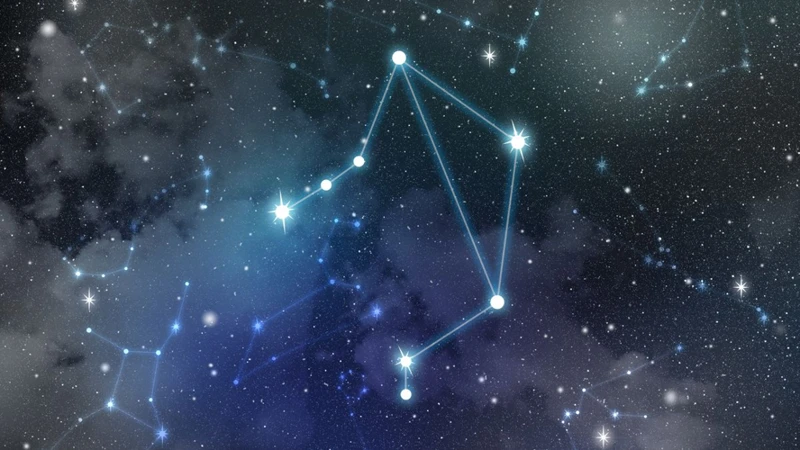
While astrology and astronomy may seem worlds apart, they do share some common ground. One area of convergence is celestial mechanics, the study of the motion and behavior of celestial objects. Both astrology and astronomy rely on understanding the movements of the planets, stars, and other celestial bodies. Additionally, both disciplines recognize the influence of these celestial objects and their alignments on Earth. Another common ground between astrology and astronomy is their impact on culture. Throughout history, both have played significant roles in shaping belief systems, influencing art and literature, and even guiding societal practices. These shared aspects show that astrology and astronomy, despite their different approaches and purposes, have had a lasting impact and continue to coexist in our collective consciousness.
1. Celestial Mechanics
Celestial mechanics is a fascinating field that lies at the intersection of astrology and astronomy. It focuses on the mathematical and physical principles that govern the motion and behavior of celestial bodies, such as stars, planets, and moons. In astronomy, celestial mechanics plays a crucial role in understanding the precise movements of these celestial objects. Through meticulous calculations and observations, astronomers can predict the positions and orbits of planets, eclipses, and other celestial events with remarkable accuracy. This scientific understanding of celestial mechanics has revolutionized our comprehension of the universe and allows us to explore the cosmos with telescopes and satellites. However, celestial mechanics also has implications for astrology. Astrologers believe that the positions and alignments of celestial bodies influence human personalities and events on Earth. Though the scientific community generally disputes the notion of astrological influence, the study of celestial mechanics provides a framework through which astrologers can attempt to understand and interpret the cosmic relationships that they believe impact our lives.
2. Influence on Culture
The influence of astrology and astronomy on culture is vast and profound. Both fields have shaped belief systems, influenced art forms, and left indelible marks on various aspects of human civilization.
1. Astrology’s impact on culture can be seen through the continued popularity of zodiac signs and horoscopes in today’s society. People consult their horoscopes to gain insights into their personalities, relationships, and future prospects. Astrological compatibility is often considered in matters of love and friendship. Despite skepticism from some quarters, astrology maintains a strong foothold in popular culture.
2. Astronomy’s influence on culture is equally significant. Ancient civilizations revered celestial bodies as deities and connected them to various aspects of life. The movements of the stars and planets were considered omens for events on Earth. Astronomy also played a crucial role in navigation and timekeeping. Today, astronomical discoveries, such as the identification of exoplanets or the study of cosmic phenomena, inspire awe and wonder, contributing to our collective imagination.
The cultural impact of astrology and astronomy cannot be overlooked. Their influence extends to literature, art, music, and even language. Many idioms and expressions in different cultures have celestial origins. They provide rich sources of inspiration for creative endeavors and serve as avenues for self-reflection and exploration.
Bridging the Gap
Bridging the gap between astrology and astronomy is a complex but intriguing endeavor. In recent years, there has been a growing interest in exploring the connections between these two fields. Astrologers have begun to incorporate scientific principles and astronomical knowledge into their practice, acknowledging the importance of understanding celestial mechanics and accurate astronomical data. At the same time, astronomers have recognized the cultural and historical significance of astrology, studying its impact on societies throughout history. By embracing a multidisciplinary approach and fostering dialogue between astrologers and astronomers, we can create a space where science and mythology can coexist harmoniously, shedding light on the mysteries of the universe while honoring the enduring fascination with personality traits and zodiac signs.
1. Astrology in Modern Astronomy
In the realm of modern astronomy, astrology plays a role that extends beyond mere myth and superstition. Scientists and researchers have explored the connections between astrology and astronomy, seeking to uncover any potential correlations or patterns. One area of interest is astro-genetics, which explores the idea that our genetic makeup might interact with the celestial bodies in ways that influence our personality traits and characteristics. While some may view this as pseudoscience, proponents argue that there could be underlying mechanisms at work that are yet to be fully understood.
Researchers have also been studying the impact of astrological events on astronomical phenomena. For example, studies have been conducted to determine if certain cosmic events, such as solar flares or planetary alignments, have any effect on Earth’s climate or electromagnetic fields. While the results are often inconclusive or controversial, these studies demonstrate the ongoing exploration of the potential connections between astrology and astronomy.
Another way astrology is present in modern astronomy is through the interest in debunking the myth of incompatible zodiac signs. Many people believe that certain zodiac signs are incompatible with each other, leading to difficulties in relationships. However, astronomers and psychologists have taken on the task of examining this belief and providing evidence to the contrary. They argue that compatibility in relationships is influenced by various factors unrelated to astrology, such as communication, values, and personal growth.
Astrology continues to have a presence in modern astronomy, albeit in an exploratory and investigatory capacity. While some connections may seem far-fetched or lack scientific evidence, researchers remain curious about the potential links between celestial phenomena and human experiences. Whether it is through astro-genetics, the study of astrological events, or the debunking of zodiac myths, astrology continues to bridge the gap between science and mythology in the realm of modern astronomy.
2. Astronomy in Modern Astrology
Astronomy has made significant inroads into modern astrology, enhancing its credibility and bridging the gap between science and mythology. With advancements in technology and access to astronomical data, astrologers now have access to accurate and precise celestial information. They can incorporate planetary positions, lunar cycles, and other celestial events into their interpretations. By understanding the astronomical aspects behind astrology, practitioners can provide more nuanced and accurate readings. For example, the discovery of new celestial bodies beyond our solar system has expanded the astrological framework, allowing for the inclusion of new planetary influences. These astronomical findings have also contributed to debunking certain myths associated with astrology, such as the perception of incompatibility between zodiac signs. Modern astrology now takes into account the complex interplay of genetics, environmental factors, and celestial influences, providing a more comprehensive understanding of personality traits and zodiac interactions.
Conclusion
Conclusion:
- In conclusion, astrology and astronomy, while distinct in their approaches, have a shared history and a potential for mutual understanding. Although astrology is often dismissed as pseudoscience, its cultural and historical significance cannot be ignored. It has played a significant role in shaping the beliefs and practices of societies throughout the ages.
- Astronomy, on the other hand, is a scientific discipline that has led to groundbreaking discoveries about the universe and expanded our knowledge of celestial bodies. It has given us a deeper understanding of the cosmos and our place within it.
- Despite their differences, astrology and astronomy have the potential to bridge the gap between science and mythology. Both fields rely on observation and interpretation of celestial phenomena, and both have made significant contributions to our understanding of the universe.
- As we continue to explore the mysteries of the cosmos, it is important to recognize the value of astrology in understanding human culture and history. It provides insight into how ancient civilizations perceived and interacted with the celestial realm.
- Similarly, incorporating astronomical knowledge into astrology can enhance its credibility and bring it closer to the realm of science. By embracing scientific principles and updating astrological practices, astrology can become more aligned with our modern understanding of the universe.
So, rather than viewing astrology and astronomy as conflicting disciplines, it is more productive to see them as complementary fields that offer unique perspectives on our place in the cosmos. By acknowledging their shared origins and common ground, we can foster a greater appreciation for the beauty and complexity of both astrology and astronomy.
Frequently Asked Questions
1. What is astrology?
Astrology is a belief system that suggests a correlation between the positions and movements of celestial bodies, such as the sun, moon, and planets, and events and traits in human lives.
2. Are astrology and astronomy the same thing?
No, astrology and astronomy are distinct disciplines. Astrology focuses on the interpretation of celestial bodies for divination and personality analysis, while astronomy is the scientific study of celestial objects and phenomena.
3. How did astrology and astronomy originate?
Astrology has its roots in ancient civilizations, such as Babylon and Egypt, where celestial observations played a significant role in religion and decision-making. Astronomy emerged as a scientific pursuit in ancient Greece.
4. Is there any scientific evidence supporting astrology?
While astrology holds significance for many individuals, it is not widely accepted in the scientific community. The lack of empirical evidence and the difficulty in conducting controlled experiments make it challenging to validate astrological claims.
5. What is the Zodiac?
The Zodiac is a band of the sky divided into twelve equal parts, each associated with a specific constellation. Astrologers believe that the position of celestial bodies within the Zodiac at the time of birth influences personality traits and life events.
6. Can astrology predict the future?
Astrology claims to provide insights into future events and personal characteristics. However, its predictive abilities remain a matter of debate, as different astrologers may interpret celestial positions differently.
7. How does astronomy contribute to our understanding of the universe?
Astronomy utilizes advanced telescopes and observation techniques to study celestial objects, unravel the mysteries of the universe, and further our understanding of its origins, composition, and evolution.
8. What is the importance of celestial mechanics in astronomy?
Celestial mechanics is a branch of astronomy that focuses on the mathematical calculations and principles governing the motions of celestial objects. It enables accurate predictions of astronomical phenomena and the study of gravitational interactions.
9. How have astrology and astronomy influenced culture?
Astrology has had a profound impact on various cultures throughout history, shaping religious beliefs, art, literature, and even political decisions. Astronomy, with its awe-inspiring discoveries, has inspired scientific curiosity and pushed boundaries of human understanding.
10. Can astrology and astronomy be integrated?
While astrology and astronomy have distinct methodologies and approaches, some individuals and scholars attempt to integrate the two disciplines by exploring the psychological and symbolic interpretations of celestial phenomena alongside scientific observations.

